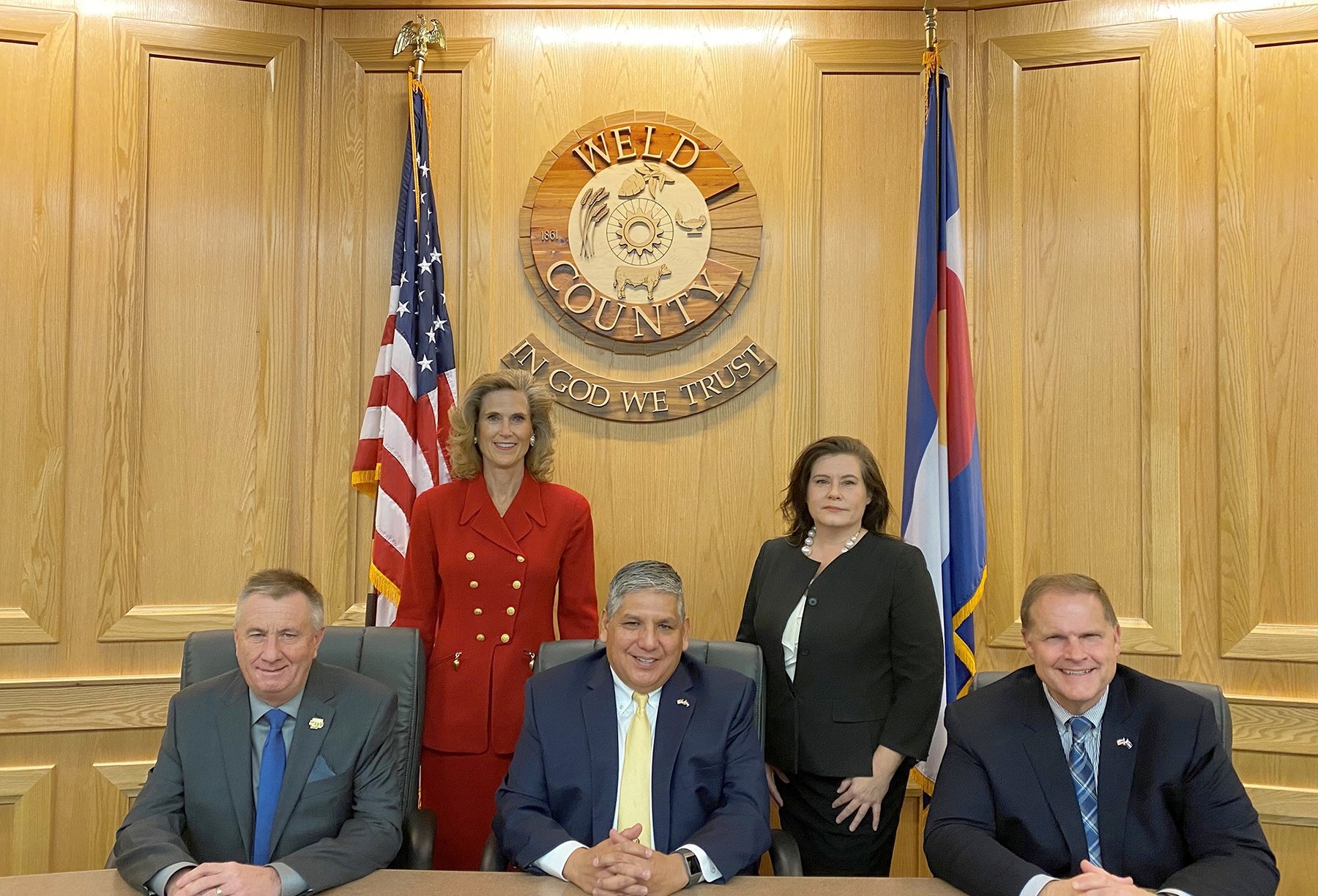Weld Board of County Commissioners voices opposition to collective bargaining bill in the works
Weld County Commissioners, from left to right, Mike Freeman, Perry Buck, Steve Moreno, Lori Saine, and Scott James.
By Kelly Ragan
The Weld County Board of County Commissioners is one of the latest local government bodies to announce opposition to a collective bargaining bill in the works for public employees.
The Greeley City Council officially stated opposition to the draft of the bill back in February.
According to a report by Colorado Politics, the early draft of the bill, which has not yet been formally introduced, would allow “public employees to unionize, collectively bargain, communicate with other public employees, participate in the political process, have exclusive representation at formal discussions on grievances or personnel policies and practices, and be able to post information on unions in the employer’s facilities. In addition, joining a union would be optional.”
This would include employees of local municipalities such as the City of Greeley, county governments, higher education and K-12 education. As it stands, public employees are prevented from collective bargaining – unless specifically given permission by their employer or local voters (think the teacher’s union). Many times, collective bargaining takes place in a union.
In a news release, Weld County Commissioners cited high costs as their primary reason to oppose the proposal.
Conservative estimates show the proposal would cost Weld about $30 million, according to the release, “an amount so high that county governments across the state will be forced to severely cut citizen services.”
So far, 38 counties in Colorado have signaled opposition to the bill, as have the Colorado Association of School Boards, the Colorado Association of School Executives, the Colorado Municipal League, the Special District Association, according to the release.
Even Gov. Jared Polis indicated he would oppose the bill, though according to a report by CPR, Polis would consider supporting a bill with a narrower focus.
“County commissioners are elected by our voters to properly manage their tax dollars,” Weld County Commissioner Chair Scott James said in the release. “This bill defies the will of local voters and takes away county commissioners’ ability to do the job our residents elected us to do. The dual burden of reducing county services while increasing county budgets is a no-win scenario for residents under normal circumstances—but is a cruel irony that this bill is introduced during these times of rising inflation and global uncertainty.”

